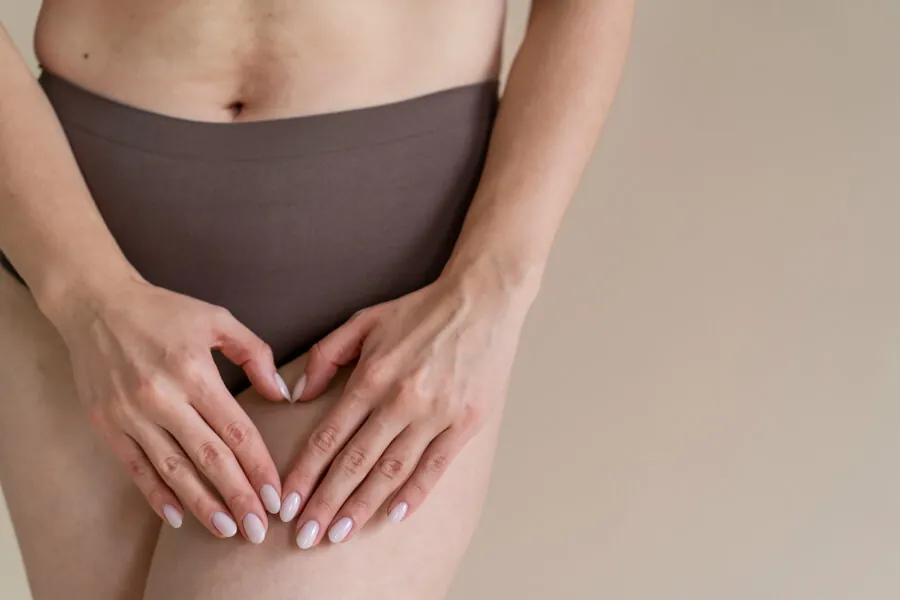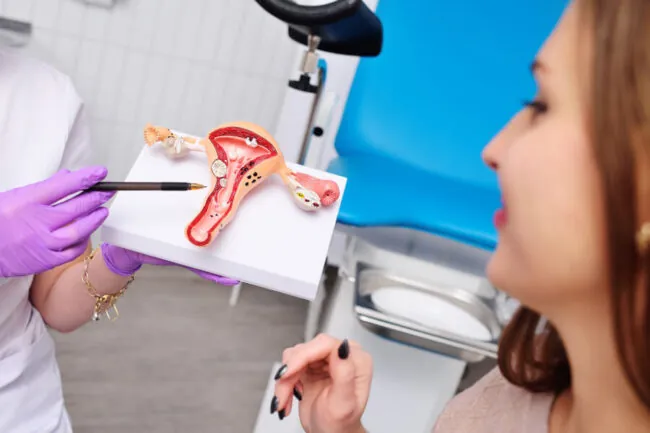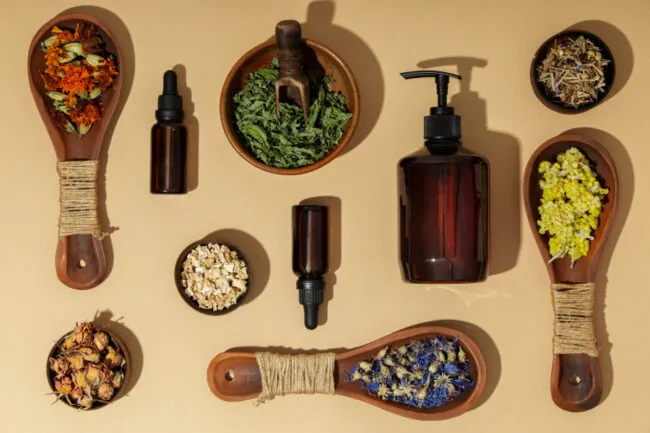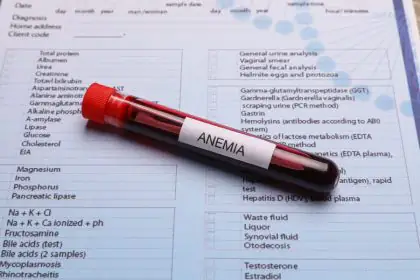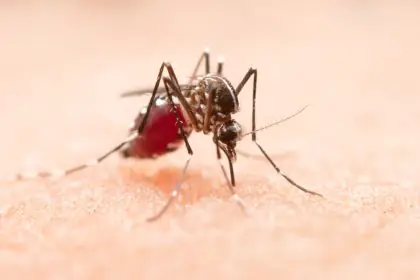Vaginal dryness, often a symptom of vulvar atrophy, can be an uncomfortable and distressing condition.
This condition is particularly common during and after menopause due to hormonal changes, but it can affect women at any stage of life.
While there are various treatments available, many people are turning to natural remedies, such as essential oils, for relief.
Understanding Vaginal Dryness
Vaginal dryness occurs when the tissues of the vagina are not well-lubricated, leading to discomfort, itching, and even pain during intercourse. It’s a common issue that can affect quality of life and intimate relationships.
Causes of Vaginal Dryness
- Hormonal Changes: The most common cause, particularly during menopause when estrogen levels drop.
- Medications: Certain medications, including antihistamines and antidepressants, can cause dryness.
- Medical Conditions: Conditions like Sjogren’s syndrome and diabetes can lead to dryness.
- Stress: High levels of stress can impact hormone levels, contributing to dryness.
- Douching and Harsh Soaps: These can disrupt the natural pH balance of the vagina.
Vaginal Dryness Diagnosis
If you experience symptoms of vaginal dryness, it’s important to consult with a healthcare professional for a proper diagnosis. They might perform a physical examination and ask about your symptoms and medical history to rule out other conditions.
Essential Oils for Vaginal dryness Relief
Essential oils have been used for centuries for their therapeutic properties. When used correctly, they can provide significant relief from vaginal dryness.
Benefits of Using Essential Oils
- Natural Lubrication: Essential oils can help moisturize and lubricate vaginal tissues.
- Anti-inflammatory Properties: They can reduce inflammation and soothe irritated tissues.
- Antimicrobial Effects: Some essential oils have antimicrobial properties that can help prevent infections.
- Hormonal Balance: Certain oils may help balance hormones naturally.
Top Essential Oils for Vaginal Dryness Relief
- Lavender Oil: Known for its soothing and anti-inflammatory properties.
- Rose Oil: Helps in moisturizing and balancing hormones.
- Tea Tree Oil: Has antimicrobial properties, but should be used in very small quantities and always diluted.
- Geranium Oil: Known for its ability to balance hormones and improve skin health.
- Chamomile Oil: Soothes irritated skin and reduces inflammation.
How to Safely Use Essential Oils
When using essential oils for vaginal dryness, it’s crucial to do so safely:
- Dilution: Always dilute essential oils with a carrier oil. Good options include coconut oil, jojoba oil, or almond oil. A safe dilution ratio is typically 1-2 drops of essential oil per tablespoon of carrier oil.
- Patch Test: Before applying the mixture to sensitive areas, do a patch test on your inner arm to check for any adverse reactions.
- Application: Use a clean, sterile applicator or your fingers to gently apply the diluted oil mixture to the vaginal area.
- Frequency: Start with once a day and adjust based on your comfort and the severity of dryness.
Remedies and Treatments for Vaginal Dryness
In addition to essential oils, there are several other natural remedies and lifestyle changes that can help manage vaginal dryness.
Dietary Changes
- Hydration: Drink plenty of water to keep your body hydrated.
- Omega-3 Fatty Acids: Found in fish, flaxseeds, and walnuts, these can help maintain healthy skin and mucous membranes.
- Phytoestrogens: Foods like soy, flaxseeds, and tofu contain phytoestrogens, which can mimic estrogen in the body and help with hormone balance.
Herbal Supplements
- Black Cohosh: Known for its estrogen-like effects, it can help relieve menopausal symptoms.
- Red Clover: Contains phytoestrogens that may help improve vaginal dryness.
- Dong Quai: Traditionally used in Chinese medicine to balance female hormones.
Lifestyle Modifications
- Avoid Irritants: Stay away from scented soaps, douches, and other potential irritants.
- Wear Cotton Underwear: Allows for better air circulation and reduces irritation.
- Regular Exercise: Helps improve blood circulation, which can enhance overall vaginal health.
Consulting with Healthcare Professionals
While natural remedies can be effective, it’s important to consult with healthcare professionals to ensure you’re choosing the best treatment for your condition.
When to Seek Medical Advice?
- Persistent Symptoms: If dryness and discomfort persist despite using natural remedies.
- Severe Pain: Any severe pain or bleeding should be evaluated by a doctor.
- Other Symptoms: If you experience other symptoms like unusual discharge or odor, it’s important to seek medical advice.
Combining Natural Remedies with Medical Treatments
Sometimes, the best approach to treating vaginal dryness is a combination of natural remedies and medical treatments. Hormone replacement therapy (HRT) and prescription medications may be necessary for some women. Always discuss with your doctor before combining treatments.
3 Techniques to help you in managing vaginal dryness
A holistic approach can be very effective in managing vaginal dryness. This involves combining natural remedies, medical treatments, and lifestyle changes for comprehensive care.
Mind-Body Techniques
- Stress Management: Practices like yoga, meditation, and deep breathing can help manage stress levels, which can impact hormonal balance.
- Pelvic Floor Exercises: Strengthening pelvic floor muscles can improve blood flow and overall vaginal health.
Embracing Self-Care Practices
- Regular Self-Care: Incorporate regular self-care routines like warm baths, gentle exercise, and adequate rest.
- Healthy Lifestyle: Maintain a healthy diet, exercise regularly, and avoid smoking and excessive alcohol consumption.
Promoting Overall Well-being
A healthy lifestyle can significantly impact your overall well-being, including vaginal health. Ensure you’re taking care of your body and mind for the best results.
Conclusion
Managing vaginal dryness naturally is possible with the right knowledge and tools. Essential oils, when used correctly, can provide significant relief and improve overall vaginal health.
By combining these natural remedies with dietary changes, lifestyle modifications, and medical advice, you can create a holistic approach to managing vaginal dryness.
Remember, it’s important to consult with healthcare professionals to ensure you’re choosing the best treatment for your specific needs.
Embrace the journey towards better health and well-being with confidence and care.
FAQs
How to Treat Vaginal Dryness?
Treating vaginal dryness can involve a combination of natural remedies like essential oils, dietary changes, and lifestyle modifications. For persistent or severe cases, consult a healthcare professional.
Why is Menopausal Vaginal Dryness Uncomfortable?
Menopausal vaginal dryness is caused by decreased estrogen levels, leading to thinning and less elastic vaginal tissues. This can cause discomfort, itching, and pain, especially during intercourse.
What is Vaginal Dryness?
Vaginal dryness is a condition where the vaginal tissues are not adequately lubricated, causing discomfort, itching, and sometimes pain.
How Can Essential Oils Help Provide Relief?
Essential oils can help moisturize and soothe vaginal tissues, reduce inflammation, and balance hormones naturally. They offer a gentle and effective way to manage symptoms of vaginal dryness.

